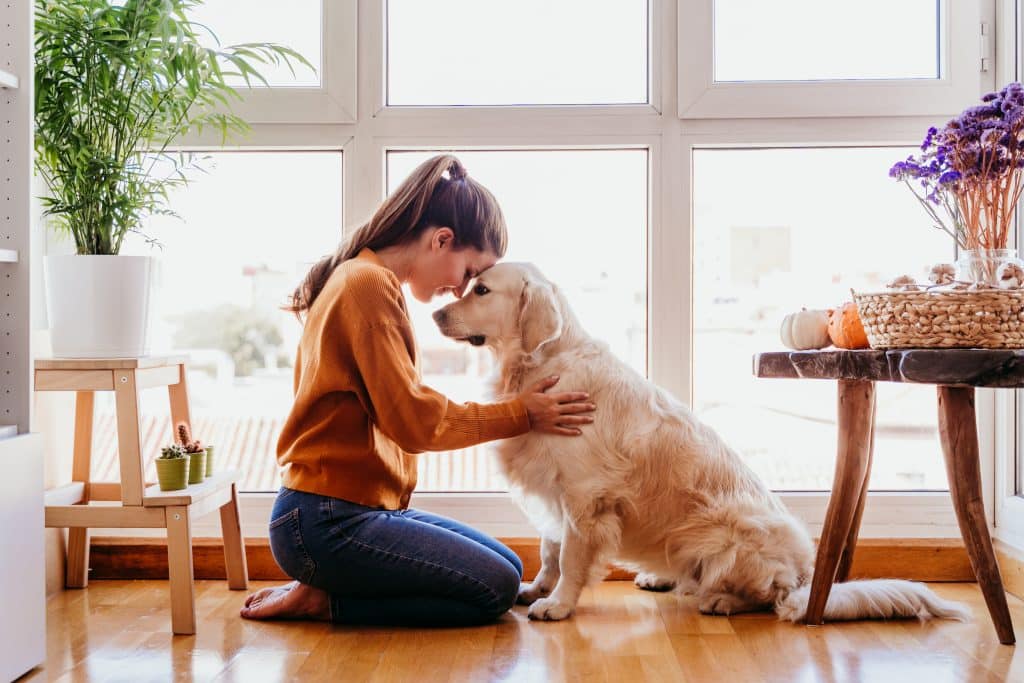Dogs who have trouble sleeping can be a challenge for any pet parent. There are various reasons your dog might not get the proper amount of shut-eye, and it can be tough to determine what is causing the problem. But before you assume the worst, there are some simple steps you can take that might help! In this article, you will find a list of tips to help your furry friend get the rest they need!
Why Sleep Is Essential For Your Furry Friend

Sleep is crucial to a dog’s health and well-being; dedicated sleep time helps keep a pup engaged and alert throughout the day. When a dog naps or lays down for extended periods, it allows for energy regeneration and restoration of their activity level. Studies suggest that enough sleep can help them stay healthy by aiding physical development, supporerall cognitive health.ting proper mental and emotional growth, boosting their immune system, and maintaining their ov
Furthermore, due to their nap-based lifestyle, dogs can adapt more quickly to changes in their environment; with sufficient sleep, they’ll stay focused on whatever task may be at hand. As pet owners, it’s incumbent upon you to make sure your furry friends get plenty of rest so they can live life to its fullest potential.
Tips For Dogs Who Have Trouble Sleeping
As important as sleep is for your pup, it can be alarming if you notice that your pup is having difficulty sleeping through the night. While some dogs can have medical issues that affect sleep, such as sleep apnea or restlessness syndrome, there are things you can do to make sure your pup gets a good night’s rest:
Establish A Routine

Establishing a routine for a dog with difficulty sleeping can ensure that your pet gets the rest they need. The most important part of any successful sleep plan is consistency. Dogs are naturally creatures of habit, so it’s essential to stick to the same eating, exercise, and sleep times each day. Also, by setting up a routine, you can get your pup used to sleeping in the same place every night and getting comfortable with the environment.
Whether you are timing it around your sleep schedule or simply having a routine, moderation is key. If you have to adjust the schedule or make drastic changes, do so slowly and consider your pup’s needs.
Limit Water In The Evening

Taking measures to regulate your dog’s drinking habits throughout the day can also help them enjoy a better night’s sleep. An ounce or two of water right before bed should be adequate to remind them that hydration is available while reducing their nighttime activity and keeping them comfortable during sleep. Limiting their water supply in the evening can prevent overnight bathroom visits and urination accidents, allowing them to settle for a restful eight hours of sleep. However, if you limit water too much or deny access to it all together during the entire day, you could inadvertently cause extreme dehydration in your pet.
Provide Plenty Of Exercise

Regular exercise plays a pivotal role in the health and well-being of your dog. Not only does it provide necessary physical stimulation, but it also helps settle anxious or over-excited minds when they are ready for bed. In addition to providing regular exercise – like one or two daily walks – some dogs may benefit from participating in agility courses and other stimulating activities.
While these activities can help improve sleep in those struggling, be sure your dog is not engaging in any strenuous activity too close to bedtime, as this may make sleeping more difficult. In addition, when providing plenty of exercise, be sure to make it fun for your pup! This will ensure they get the most out of the activity and help promote relaxation before bedtime.
Use A Melatonin Supplement

Melatonin is a natural hormone found in humans and animals and is an effective sleep aid with few side effects. Although not the only cause of sleep issues, changes in daylight or disruption of the dog’s normal circadian rhythm can often lead to a pup having difficulty getting rest. Giving your puppy a melatonin supplement before bedtime could help restore its usual sleep cycle and allow them to get a more restful sleep.
However, it is important to consult your vet before doing so, as you should tailor the dosage for each animal for maximum benefit and safety. You should ensure that you are using a supplement designed for dogs, as some formulas can vary widely from human formulas.
Create A Relaxing Sleep Environment

Ensuring a relaxing sleep environment for your dog is essential in helping them sleep better. It can be challenging for dogs to transition from an energetic day to a restful night, and leaving little room for chaos increases their comfort levels. Make sure their sleeping space is dedicated to rest only and keep it dark, cool, and comfortable; this helps signal that it’s time to relax.
Other helpful tips include providing calming scents such as lavender or chamomile, which can positively affect anxiousness. Considering these elements, you can help equip your pup with the perfect atmosphere for quality sleep.
Use CBD

CBD, otherwise known as cannabidiol, is one of the active cannabinoids found in the cannabis plant that helps with sleep issues by activating specific receptors in the body to increase relaxation and calmness. Many pet owners have succeeded in using CBD for their dogs struggling with insomnia. In addition, the natural ingredients in many CBD products soothe anxiousness and reduce inflammation that could disrupt their restful state.
Those considering using CBD therapy should consult a veterinarian first to ensure they choose safe and reliable products specially created and dosed for animals. With the right product, you may soon find your pup getting all the rest they need!
Play Calming Music

Playing calming music to help dogs who suffer from insomnia can be beneficial in a few ways:
It serves as a form of relaxation therapy and relieves the canine’s stress so that it falls asleep quickly.
It masks outside noises that may distract the animal and keep it awake.
Listening to such music encourages a positive atmosphere and helps create an environment conducive to sleep.
Options like classical music, nature sounds, and other soothing melodies can be found online or on the radio for free. Utilizing these tunes could help your pup find a better sleep cycle in no time.
There Are Solutions For Dogs Who Have Trouble Sleeping!
Getting quality rest is essential for all living beings, including your canine companions. Although some dogs have trouble sleeping for various reasons, there are plenty of ways to help them find solace. These tips above can help you get the most out of your pup’s bedtime routine and ensure that they get all the sleep they need. And if you still find yourself struggling to help your dog, don’t forget to consult a vet for more ideas and advice!